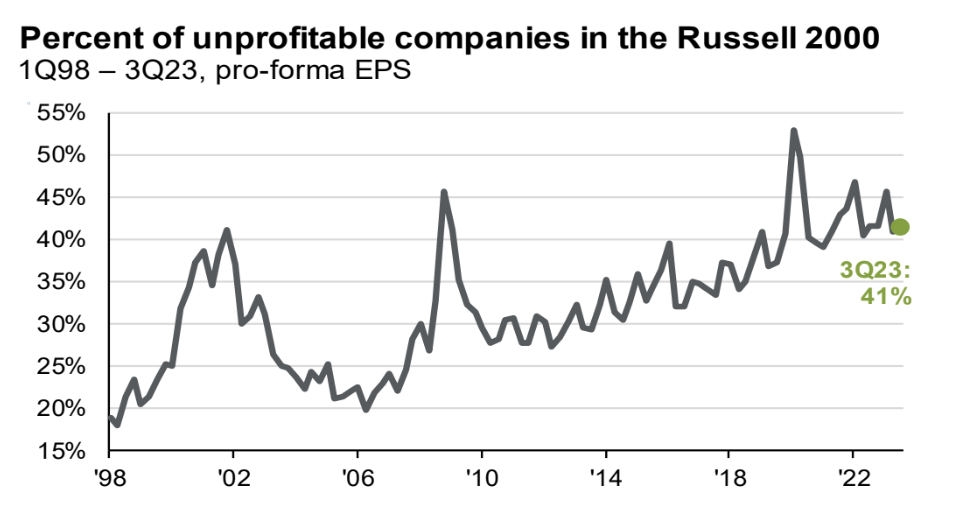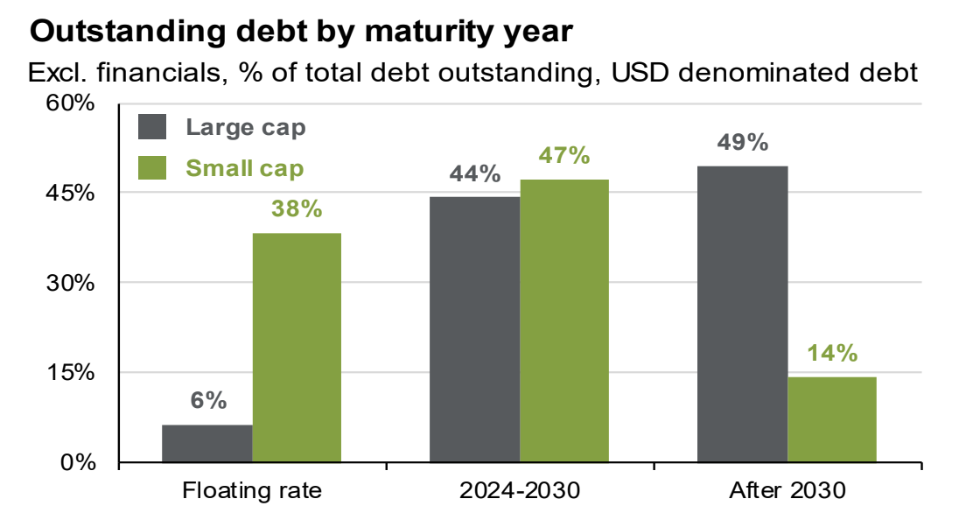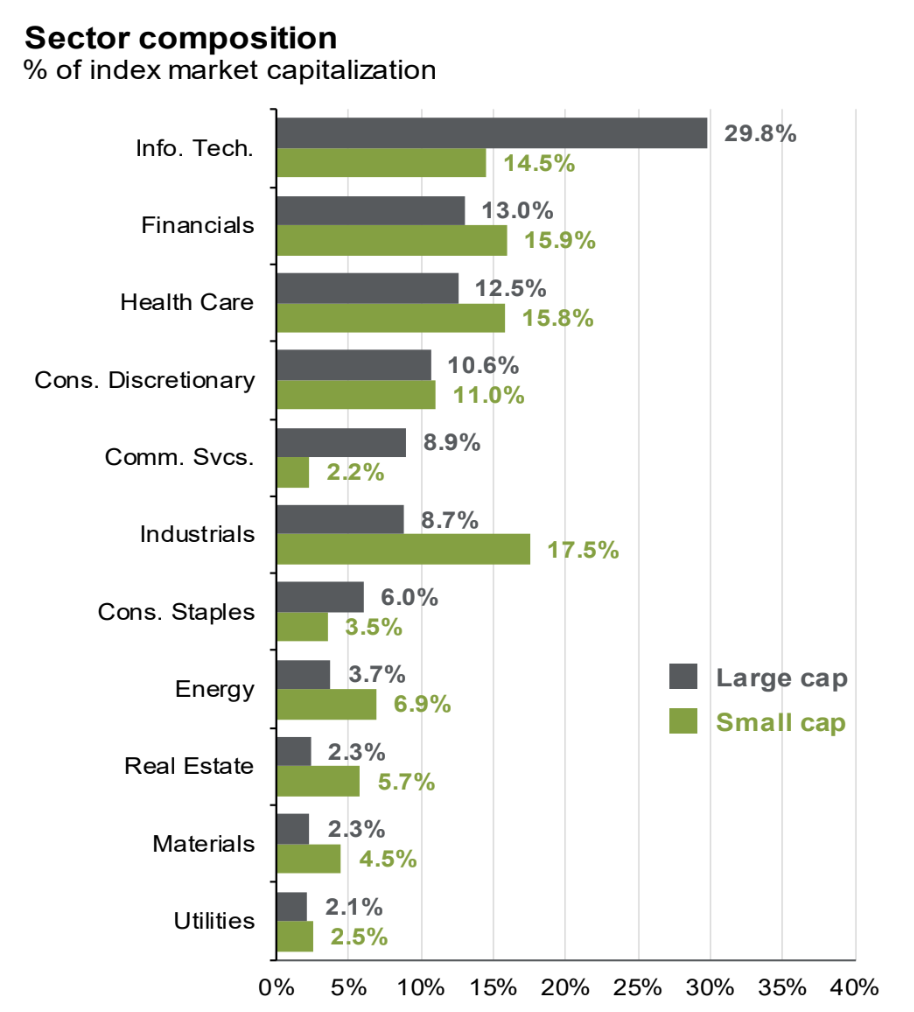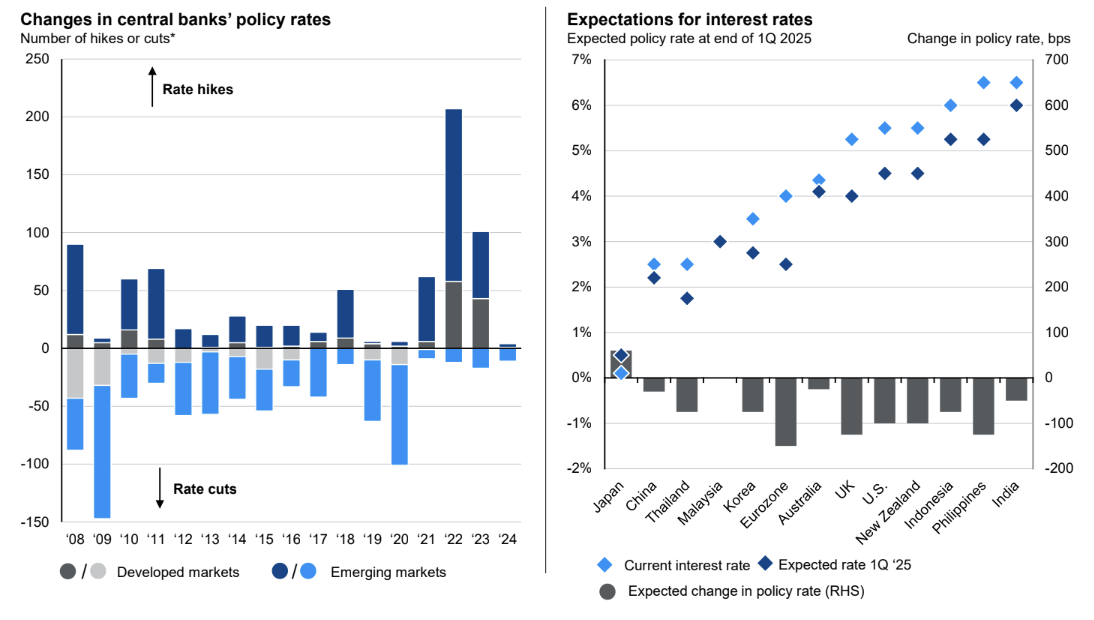J.P. Morgan a lone bear as small-cap optimism grips the globe
There's been a lot of coverage, on this very platform, about recovery expectations for local and global small caps.
Take Ausbil's Arden Jennings and Andrew Peros, for example, who believe improving global GDP activity and an oncoming rate-cutting cycle bode well for small caps. Or Eiger Capital's Stephen Wood, who argues small-cap earnings have continued to surprise to the upside, and that rate cuts will also support valuations. Or Fat Tail Investment Research's Callum Newman, who believes small caps are having their day in the sun. Or Goldman Sachs Asset Management's Sadhvi Gupta, who argues several fundamentals underpin the supportive environment that lies ahead for global small caps.
All this is to say that most experts are bullish on the recovery for small caps both here and overseas. That is, other than the minds at J.P. Morgan Asset Management.
On Thursday, global market strategist Kerry Craig and US equities investment specialist Christian Mariani argued that a recovery in US small caps is unlikely anytime soon.
In this wire, I'll outline why they still prefer quality large caps over their small-cap counterparts.
Note: These quotes were taken from a J.P. Morgan Asset Management media briefing on Thursday 18 April 2024.
2 reasons why J.P. Morgan prefers large caps over small caps
While Mariani notes that small caps are currently trading at attractive valuations versus their large-cap peers, he notes that after digging a bit deeper, there are two reasons why small caps could continue to underperform.
"The first one is the fact that a large part of the small-cap universe in the US is still unprofitable," he says.
"You can see the data from Q3 last year, just to give you an idea. That's 40% of the universe of small caps being profitable at a time when rates are between 5-6%. That's not great to see."

The second reason J.P. Morgan Asset Management isn't feeling as bullish as the rest of the market is debt levels. As outlined in the chart below, small caps have significantly more exposure to floating rate debt - meaning that in an environment where rates have lifted by 525 basis points, expenses for these companies would have risen substantially.

"Not only that, but almost 47% of their debt is due over the next six years. So if interest rates stay higher for longer, this debt will be refinanced at likely higher rates than what these small caps were able to do over the last 10 years," Mariani says.
"That's going to put pressure on their balance sheets and interest expenses."
With this in mind, J.P. Morgan Asset Management is still learning towards large caps - particularly those companies that display quality attributes like higher profitability, cashed-up balance sheets, and those that are in sectors that are exposed to secular growth trends, like technology.

For instance, nearly 30% of the large-cap index (the S&P 500) are technology companies, while tech companies make up less than half of the small-cap index (the Russell 2000).
"You might want to look into [small caps] coming out of the recession - that's when small caps already underperform the economy and start to pick up, as small caps tend to be much more levered to the real economy," he explains.
"It doesn't feel like we are there right now, we are certainly not at that intersection."
J.P. Morgan's outlook on the USD
J.P. Morgan Asset Management's views on the trajectory of the US dollar have also shifted in recent months. While the investment bank previously expected a flat to depreciating USD, it now believes that the currency remains "well supported" in this environment.
Craig noted that J.P. Morgan is expecting one rate cut from Australia (25 bps) in the early part of next year, while he predicts we will see 150 bps in cuts the Eurozone, 125 bps of cuts in the UK, and 100 bps in the US.
He argues that we are likely to see a rate cut from the Fed in September, before the US presidential election - which would give the Fed more time to assess recent higher than expected inflation data.

The ECB, by comparison, is very much focused on cutting rates - with the region's inflation outlook surprising to the downside. Craig believes that the ECB is likely to be the first developed market central bank to cut rates.
"Obviously, the US dollar will stay strong in that context, particularly on a dollar-weighted basis," he says.
"So we do see that adding to dollar strength, which can be a challenge when thinking about the performance of the Australian dollar as well."
Craig believes the Aussie dollar will see "modest appreciation" to 68 US cents.
"That does become a little bit more challenging in how far that will actually eventuate over the course of this year if rate cuts get pushed out further to the end of the year for the US as well," he adds.
"So a little bit more divergence of who starts [first] and when, but still quite synchronised in the idea that a lot of these central banks are going to start cutting rates. "
3 topics
5 contributors mentioned

